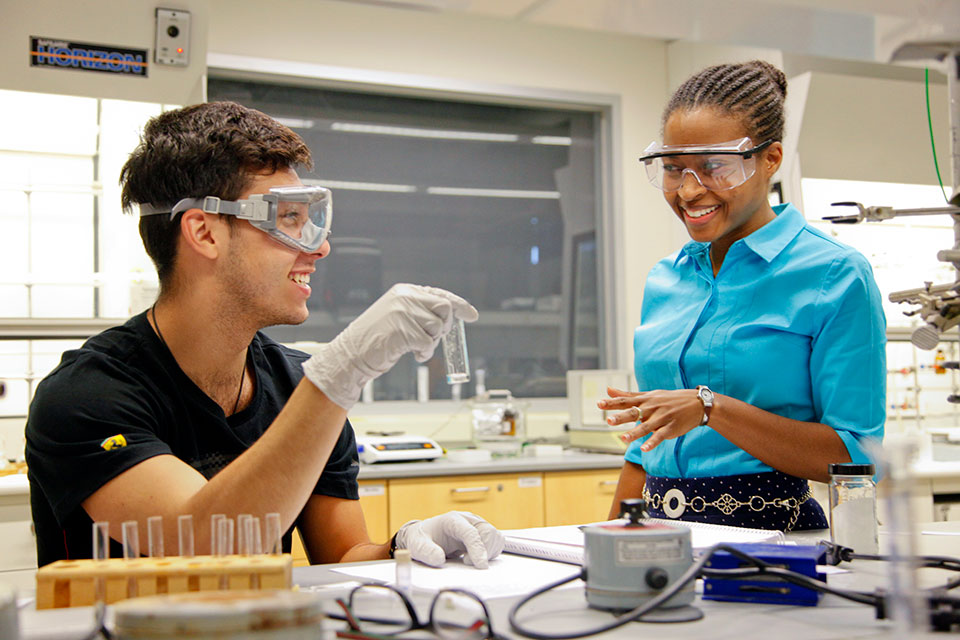Chemistry, Chemical Biology and Biochemistry

What is chemical biology, and how does it differ from biochemistry?
Chemical biology deals with how chemistry can be applied to solve biological problems while biochemistry is the study of the chemistry of biology. In general, the chemical biology major focuses on small molecules while the biochemistry major focuses on proteins and nucleic acids.
Both programs start with a core of general chemistry, organic chemistry, genetics, cell biology, physics and introductory biochemistry. The chemical biology degree is very flexible — you can tailor your program to take graduate level courses in organic chemistry, medicinal chemistry, bioinorganic chemistry and materials science. The biochemistry major offers a smaller set of rigorous courses in macromolecular chemistry, mechanism and structure. Both majors allow some electives to be chosen for upper level biology courses.
Both majors provide excellent preparation for medical school and graduate school. With the chemical biology major, you would be somewhat better prepared for a PhD program in chemistry or chemical biology, and with the biochemistry major you would be somewhat better prepared for a PhD program in biochemistry or biophysics, but this difference is of little consequence in practice — as medical schools, graduate schools are flexible regarding your major is as long as you have taken the appropriate preparatory courses. Therefore, depending on your choice of electives, you could be a strong candidate for PhD programs in chemistry, chemical biology, cell biology, pharmacology and pharmaceutical chemistry, biochemistry and biophysics from either major.
As for employment, you can get a job in the pharmaceutical/biotech industry with either major. With the chemical biology major, you would be the person designing and synthesizing the drug candidates, while with a biochemistry major, you would be the person designing assays to test the drug candidates.
Bottom line: both the chemical biology and biochemistry majors will open the door to an array of career options. The choice really depends on what your interests are. If you are interested in learning more ask to meet with a chemistry department faculty member that does chemical biology research or contact the Undergraduate Advising Head. They will be happy to discuss it with you further.
Chemistry Highlights
The Sprout Program is back! Funded by the Provost’s Office and the Office of Technology Licensing (OTL), Sprout is designed to encourage and support translational research activity within the Brandeis community for faculty, postdocs, and student researchers (graduate and undergraduate) in the Division of Science. The awards (up to $25,000) are intended to help advance early-stage technologies to industry adoption. Pre-applications … <a href="https://brandeisscience.wordpress.com/2024/02/28/sprout-pre-application-deadline-is-3-29/" class="more-link">Continue reading<span class="screen-reader-text"> "Sprout pre-application deadline is 3/29"</span></a>